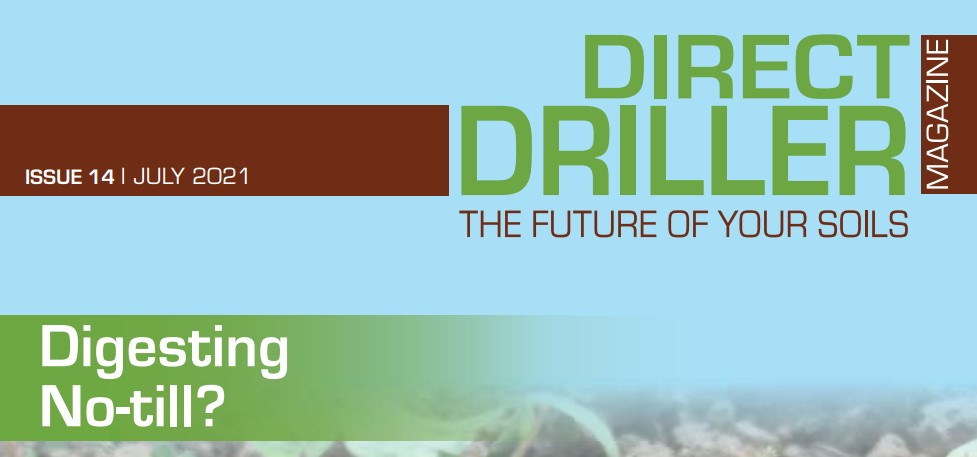Despite the pandemic and the likely economic crises in its wake, people continue to experience a growing anxiety concerning greenhouse gases (GHG) and climate change, which extends to include farms and food production. While farming, and the process of photosynthesis, is one of the few ways of reducing CO2, livestock production and soil cultivation release GHGs to a significant extent. If emission targets are to be met, farm emissions will need to be reduced. Getting farmers to emit less involves persuasion as well as financial inducements. KT – knowledge transfer – plays a big part in creating a climate of change.
KT has been around farming for some years and ranges from a informal discussion group to a full blown lecture from a leading professor. But it also includes literature such as the Direct Driller you’re reading today. Publications such as this are, in fact, an excellent way to help modernise an industry, and by this I’m not thinking of a new tractor or 4×4. Modern farms which pollute less, protect nature more, produce a more natural product are businesses that have all made changes, often with considerable scepticism. They have invested, sometimes reluctantly. They have absorbed the jibes of neighbours.
KT can be a huge yawn or a life changing moment. As a dairy farmer I’ll never forget going to a talk in 1982 on New Zealand farming where Everett Thorburn from the NZ dairy board explained the benefits of NZ breeding, and how a NZ bull with a heifer yield of 4,800 litres can be a better buy than a Holstein with 7,000. I was young and rash, ordered NZ semen and, in the course of the next dozen years, changed my herd from average to being really profitable. It took time, patience and belief.
That ninety minute talk prompted an immediate response because it was logical, factual and entirely relevant to a grass farm in West Wales, and decades before the internet, which today brings farmers so much closer together. As you read your way through this issue, finding out how manufacturers have improved the performance of their direct drilling equipment; just how dependent UK farming is on Basic Payment from analysis by Gary Markham of Land Family Business; how GHG intensity varies with crop yields; what the latest research reveals. Add to this the many ‘Farmer Focus’ pages where real farmers explain the hows, whys and results of making a change in their methods.
These real time experiences are inspiring and motivating. If farming is to achieve its goals on climate change it is these farmers who will kick start others to make the change. Abandoning the plough, power harrow and cultivator is not easy, needs commitment and care in deciding the best way to go. Reading how people have achieved success can be very elevating! If you would like to contribute just give me a call 07778 877514. Last but not least, it is worth remembering this publication comes to you at zero cost, thanks to the foresight of its creator Clive Bailye, and the advertisers and supporters who pay the bills.



